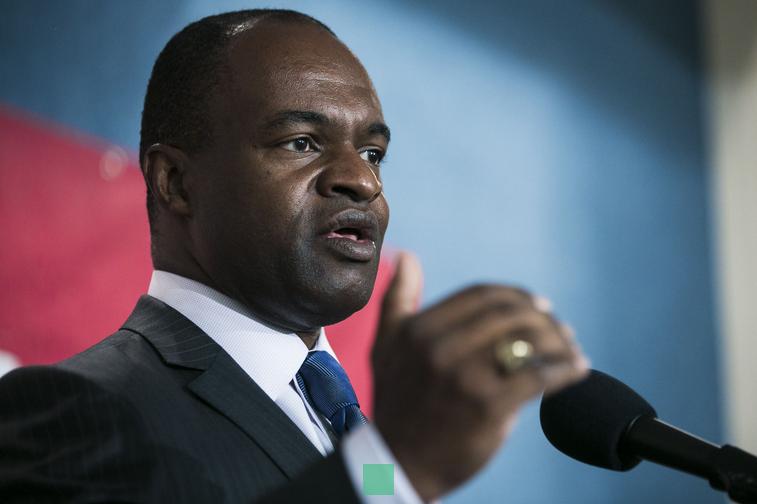The NFL’s 18-Game Season: A Game Changer or a Player’s Nightmare?

The NFL’s regular season schedule has been a constant for decades, with 16 games a year, but whispers of an 18-game season have been circulating for years. Now, those whispers are turning into concrete discussions between the league and the NFLPA. This potential change isn’t just about adding two more games to the calendar; it’s about a whole new landscape for the league, the players, and the fans. The NFLPA executive director, Lloyd Howell, recently revealed in an interview with the Washington Post that talks with the league have begun regarding an 18-game season. These talks are still in their early stages and not yet formal negotiations, but they’re a significant indicator that an 18-game season might be closer than we think.
The concept of an 18-game season has been met with mixed reactions. Some fans are excited about the prospect of more football, more chances to see their favorite teams play, and more opportunities for their favorite players to showcase their talents. The NFL, naturally, is eager to increase revenue with an extended season, which translates into more games, more advertising, and potentially, more merchandise sales. However, the players themselves are divided on the issue. Their concerns are valid: more games mean a higher risk of injuries, more wear and tear on their bodies, and possibly even a shorter career span.
The NFLPA, the organization representing the players’ interests, has a long history of advocating for player safety and well-being. Established in 1956, the NFLPA is the second-oldest labor union of the major North American professional sports leagues, and its primary goal is to ensure fair compensation and working conditions for its members. The NFLPA has already negotiated an expansion of the season to 17 games in 2021, a move that was met with some resistance from the players. The prospect of adding another game to the season raises even more concerns about player health and the potential for burnout.
The NFLPA is tasked with balancing the players’ interests with the league’s desires for a longer season. They have to find a way to make an 18-game season work without compromising the players’ health and safety. This delicate negotiation involves a lot more than just adding two games to the schedule. It’s about finding a balance between entertainment value, player safety, and financial gain. The NFLPA is also focused on ensuring that any changes to the schedule are fair to all players, regardless of their position, experience, or contract status. The NFLPA has a lot of work ahead of it, and they need to be mindful of the potential consequences of an 18-game season.
As the NFLPA and the league continue their discussions, it’s important to remember that the players are the heart and soul of the game. They are the ones who take the hits, push their bodies to the limit, and entertain millions of fans across the globe. It’s essential that their health and well-being are prioritized, even in the face of a potentially lucrative 18-game season. The NFLPA is responsible for protecting the players’ interests and ensuring that they are treated fairly. The upcoming negotiations will be a defining moment for the organization, and the outcome will have a significant impact on the future of the NFL.
The Concerns of the Players
The players have a legitimate reason to be apprehensive about the prospect of an 18-game season. While the NFL views it as a way to boost revenue and fan engagement, the players are faced with the reality of more games, more injuries, and potentially, a shorter career. The current 17-game season is already physically demanding, and adding another game could push players to their limits, increasing the risk of injuries and burnout.
The NFL has a history of players suffering severe injuries, especially in the later stages of their careers. The 18-game season could exacerbate this problem, leading to more players retiring early or experiencing chronic pain and health issues. Some players have expressed concerns about the impact of an extended season on their families and personal lives. The NFL’s schedule is already grueling and requires players to be away from their families for long periods. An 18-game season would only make this issue worse.
The NFLPA’s role in this debate is crucial. They are the players’ voice in these negotiations, and they have to advocate for their safety and well-being. They have to ensure that any deal reached with the NFL prioritizes player health and minimizes the risk of injuries. The NFLPA has a responsibility to its members to protect their interests and ensure a fair deal. This will involve a lot of hard work and tough negotiations with the league.
The NFLPA has a long history of fighting for players’ rights and safety. They have been instrumental in achieving improvements in player compensation, benefits, and working conditions. They were also instrumental in implementing concussion protocols and promoting the use of safer equipment. The NFLPA is dedicated to ensuring that the game is safe for all players, and they will continue to advocate for their health and well-being in the face of an 18-game season.
The NFL is a business, and it’s always looking for ways to increase revenue and fan engagement. The 18-game season is a potential avenue for achieving these goals, but the NFL needs to be mindful of the potential impact on the players. The league has a responsibility to ensure that the players are treated fairly and that their safety is prioritized. The NFLPA is the players’ voice in these negotiations, and they have a critical role to play in ensuring that a fair deal is reached.
The NFL’s Perspective

From the NFL’s perspective, an 18-game season presents a compelling opportunity to expand viewership, increase revenue, and further solidify its position as the most popular sport in America. The league believes that the added games would not only attract new fans but also provide existing fans with more content and entertainment. With more games, the NFL could also create new opportunities for sponsorship and advertising, boosting its overall financial performance and potentially expanding its global reach.
The NFL also contends that an 18-game season would provide greater flexibility in scheduling and potentially allow for more marquee matchups. This would mean more competitive games with higher stakes, which could translate to increased excitement and viewership. The league is confident that the additional games would be well-received by fans and would only serve to enhance the overall NFL experience.
The league is also acutely aware of the concerns surrounding player safety and is actively seeking ways to address these concerns. The NFL has implemented a number of initiatives in recent years to promote player safety, including new rules, enhanced concussion protocols, and improved equipment. The league is committed to continuing these efforts and believes that an 18-game season can be implemented in a safe and responsible manner.
However, the NFL’s commitment to player safety is often met with skepticism from players and the NFLPA. While the league has introduced new measures, there are still concerns about the potential for increased injuries and the long-term effects of playing more games. The NFL’s commitment to player safety will be tested in the upcoming negotiations as they seek to reach a deal that satisfies both the league’s financial goals and the players’ safety concerns.
The NFL’s desire for an 18-game season is driven by a combination of financial ambition and a desire to maintain its dominance in the sports landscape. The league is well aware of the potential benefits, but they also understand the need to address concerns about player safety and secure the players’ agreement. The upcoming negotiations will be a crucial test for the league’s commitment to player well-being and its ability to balance its own interests with those of its players.
The Road Ahead
The discussions between the NFL and the NFLPA regarding an 18-game season are still in their early stages, but they signal a potential turning point for the league and its players. The NFLPA has a crucial role to play in ensuring that any deal reached prioritizes the safety and well-being of its members. They will need to carefully consider the potential risks and benefits of an 18-game season and advocate for a fair deal that protects the players’ interests.
The league, on the other hand, needs to demonstrate a genuine commitment to player safety and be willing to make concessions to address the players’ concerns. The NFL needs to find a balance between its financial ambitions and the health of its players. The upcoming negotiations will be a test of the NFL’s ability to navigate this delicate balance.
The debate surrounding an 18-game season is likely to be intense, with both sides presenting compelling arguments. The NFLPA will need to navigate the complex issues of player safety, compensation, and the potential impact on player careers. The league, in turn, will have to convince the players that an extended season is not only financially advantageous but also safe and sustainable. The outcome of these negotiations will have a significant impact on the future of the NFL, its players, and the sport as a whole.
The road ahead promises to be challenging, but it also presents an opportunity for the NFL and the NFLPA to reach a mutually beneficial agreement that balances the league’s financial interests with the players’ health and well-being. This will require open and honest dialogue, a willingness to compromise, and a commitment to finding solutions that work for everyone involved. The outcome of these negotiations will shape the future of the NFL and have a lasting impact on the game we all love.
- The NFL and the NFLPA are in talks about the possibility of an 18-game season, signaling a potential shift from the traditional 16-game schedule.
- While fans may be excited about more football and increased opportunities to watch their favorite teams, players have expressed concerns about the higher risk of injuries and wear and tear on their bodies with an extended season.
- The NFLPA, established in 1956, advocates for player safety and fair working conditions, making it a key player in negotiations regarding the season length.
- The league sees an extended season as a way to boost revenue through more games, advertising, and merchandise sales.
- The recent expansion to a 17-game season in 2021 was met with resistance from some players, highlighting the ongoing tension between player well-being and the league’s financial interests.
- Finding a balance between player safety and the league’s desire for a longer season will be crucial for both parties moving forward in negotiations.









